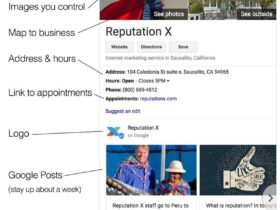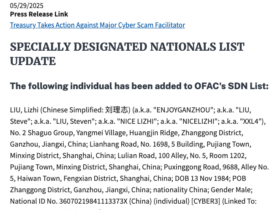This post was co-authored by EFF legal intern Noam Shemtov.
We are in a constant dialogue with Internet search engines, ranging from the mundane to the confessional. We ask search engines everything: What movies are playing (and which are worth seeing)? Where’s the nearest clinic (and how do I get there)? Who’s running in the sheriff’s race (and what are their views)? These online queries can give insight into our private details and innermost thoughts, but police increasingly access them without adhering to longstanding limits on government investigative power.
A Virginia appeals court is poised to review such a request in a case called Commonwealth v. Clements. In Clements, police sought evidence under a “reverse-keyword warrant,” a novel court order that compels search engines like Google to hand over information about every person who has looked up a word or phrase online. While the trial judge correctly recognized the privacy interest in our Internet queries, he overlooked the other wide-ranging harms that keyword warrants enable and upheld the search.
But as EFF and the ACLU explained in our amicus brief on appeal, reverse keyword warrants simply cannot be conducted in a lawful way. They invert privacy protections, threaten free speech and inquiry, and fundamentally conflict with the principles underlying the Fourth Amendment and its analog in the Virginia Constitution. The court of appeals now has a chance to say so and protect the rights of Internet users well beyond state lines.
To comply with a keyword warrant, a search engine has to trawl through its entire database of user queries to pinpoint the accounts or devices that made a responsive search. For a dominant service like Google, that means billions of records. Such a wide dragnet will predictably pull in people with no plausible connection to a crime under investigation if their searches happened to include keywords police are interested in.
Critically, investigators seldom have a suspect in mind when they seek a reverse-keyword warrant. That isn’t surprising. True to their name, these searches “work in reverse” from the traditional investigative process. What makes them so useful is precisely their ability to identify Internet users on the sole basis of what they searched online. But what makes a search technique convenient to the government does not always make it constitutional. Quite the opposite: the constitution is anathema to inherently suspicionless dragnets.
The Fourth Amendment forbids “exploratory rummaging”—in fact, it was drafted in direct response to British colonial soldiers’ practice of indiscriminately searching people’s homes and papers for evidence of their opposition to the Crown. To secure a lawful warrant, police must have a specific basis to believe evidence will be found in a given location. They must also describe that location in some detail and say what evidence they expect to find there. It’s hard to think of a less specific description than “all the Internet searches in the world” or a weaker hunch than “whoever committed the crime probably looked up search term x.” Because those airy assertions are all law enforcement can martial in support of keyword warrants, they are “tantamount to high-tech versions of the reviled ‘general warrants’ that first gave rise to the . . . Fourth Amendment” and Virginia’s even stronger search-and-seizure provision.
What’s more, since keyword warrants compel search engine companies to hand over records about anyone anywhere who looked up a particular search term within a given timeframe, they effectively make a suspect out of every person whose online activity falls within the warrant’s sweep. As one court has said about related geofences, this approach “invert[s] probable cause” and “cannot stand.”
Keyword warrants’ fatal flaws are even more drastic considering that privacy rights apply with special force to searches of items—like diaries, booklists, and Internet search queries—that reflect a person’s free thought and expression. As both law and lived experience affirm, the Internet is “the most important place[] . . . for the exchange of views.” Using it—and using keyword searches to navigate the practical infinity of its contents—is “indispensable to participation in modern society.” We shouldn’t have to engage in that core endeavor with the fear that our searches will incriminate us, subject to police officers’ discretion about what keywords are worthy of suspicion. That outcome would predictably chill people from accessing information about sensitive and important topics like reproductive health, public safety, or events in the news that could be relevant to a criminal investigation.
The Virginia Court of Appeals now has the opportunity in Clements to protect privacy and speech rights by affirming that keyword warrants can’t be reconciled with constitutional protections guaranteed at the federal or state level. We hope it does so.
















Leave a Reply